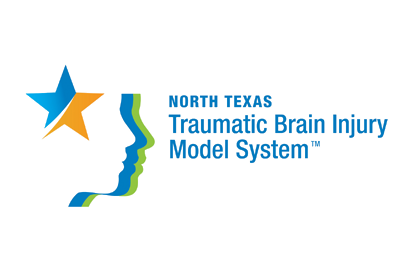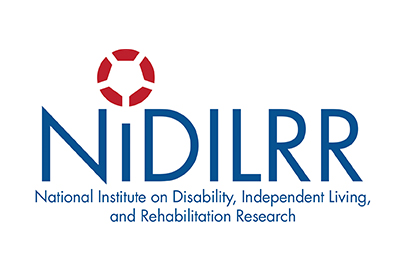Traumatic Brain Injury Model System (TBIMS)
North Texas Traumatic Brain Injury Model System
The North Texas Traumatic Brain Injury Model System (NTX-TBIMS) is a unique research and clinical collaborative between Baylor Scott & White Institute for Rehabilitation and University of Texas Southwestern Medical Center, dating back to 2002. The NTX-TBIMS is one of 16 centers nationwide that was awarded a competitive grant by the National Institute of Disability, Independent Living, and Rehabilitation Research, due to its recognition as a national leader in TBI research and patient care.
Purpose of the TBI Model System:
- Deliver coordinated rehabilitation care to patients with TBI
- Track the health of patients over their life-time to better understand and support their recovery
- Conduct innovative research to improve patient outcomes
- Participate in collaborative, multi-site research with other TBIMS centers across the country
- Provide resources to patients and families
Patient/Caregiver Resources
North Texas Local Project 2022-2027
Expanding delivery of an evidence-based weight-loss intervention to enhance access and reach underserved groups after TBI.
Investigator
Simon Driver, PhD (PI)
Importance: Weight gain is common among people with TBI, with 70% of NTX-TBIMS patients being overweight/obese 10-years post injury. Weight gain greatly increases the risk of chronic diseases such as diabetes, metabolic syndrome, and heart disease. Approaches to weight-loss are lacking, yet necessary, due to the unique physiological and cognitive needs of persons with TBI. There is evidence that interventions that improve physical activity and healthy eating behaviors concurrently offer greatest potential for weight-loss. The Group Lifestyle Balance (GLB) intervention is a 12-month, evidence-based weight-loss program that has been used extensively with the general population, but not with people with TBI (until our team’s work).
We adapted the GLB to meet the needs of people with TBI (TBI research paper) and tested the GLB-TBI program (protocol paper) with a sample of 57 people with TBI living in the Dallas-Fort Worth metroplex. Results of the 12-month program (12-month trial results paper) showed that people with TBI who participated in the GLB-TBI program lost on average 7.9% of their body weight and improved their risk for diabetes and metabolic syndrome. In 2021, the GLB-TBI curriculum was recognized by the CDC as evidence-based weight-loss curriculum for people with TBI.
Goal: For the current study, we will partner with our stakeholders (stakeholder paper) to increase the accessibility and reach of the GLB-TBI by delivering it in a telehealth, web-based format. We will also work with an advisory board of people with TBI and care partners who identify as Hispanic/Latino to modify the GLB-TBI to create a culturally relevant version in English and in Spanish. Lastly, we will develop GLB-TBI training modules so interventionists across the country can deliver the GLB-TBI program in a community setting.
Learn More About Participating in This Study
TBIMS Module Collaborative Projects 2022-2027
- Multidimensional Health Perceptions Profiles for Personalizing Patient Provider Communication; Lead: TIRR Memorial Hermann
- Understanding the Social Determinants of Health Access after Traumatic Brain Injury; Lead: Kessler Institute for Rehabilitation
- Telehealth Delivered Exercise Promotion to Treat Major Depressive Disorder after Traumatic Brain Injury: a Randomized Controlled Trial; Lead: University of Washington
- Associations of Early Life Adversity and Neighborhood Environment with Traumatic Brain Injury Outcomes in the Traumatic Brain Injury Model Systems National Database; Lead: Mount Sinai Rehabilitation Hospital
North Texas Traumatic Brain Injury Model System Investigators
Baylor Scott & White Institute for Rehabilitation
- Simon Driver, PhD | Principal Investigator
- Rosemary Dubiel, DO | Investigator
- Librada Callender, MPH, CCRC | Project Manager
- Megan Douglas, PhD | Investigator
- Chad Swank, PT, PhD | Investigator
- Donna Noorbakhsh, MS, CCC-SLP | Interventionist
- Evan McShan, MS, CCRC | Investigator
- Jacqueline Nguyen, MPH | Research Coordinator
- Alex Holden, MPH| Research Coordinator
- Stephanie Calhoun, BS | Research Enrollment Analyst
- Monica Bennett, PhD | Biostatistician
- Aimee Muir, MBA | Research Coordinator
- Alyssa Tijerina, BS | Data Coordinator
- Taylor Gilliland, MS, CCRC | Research Coordinator
- Christa Ochoa, MPH | Research Analyst
University of Texas Southwestern Medical Center
- Kathleen R. Bell, MD | Co-Principal Investigator
- Shanti Pinto, MD | Investigator
- Brittany Wright, PhD | Post-Doctoral Fellow
- Charlie Kundig, BS | Research Coordinator

